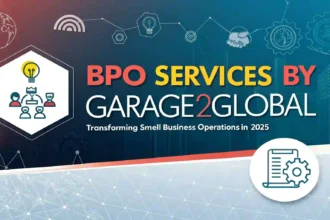Being part of the forex industry can be very exciting, but it comes with some key obstacles. A key part of building a thriving forex brokerage is getting the right license. Being licensed by a forex broker helps your business appear legitimate and inspires confidence in those you do business with. This guide shows you how to obtain the right forex license for your company to reach the main trading standards and be respected in the market.
- Recognizing Why a Forex Broker Needs a License?
- Step 1: Define Your Business Goals and Target Market
- Step 2: Research Regulatory Jurisdictions
- Step 3: Evaluate Regulatory Requirements
- Step 4: Think About How Much the Investment Will Cost
- Step 5: Seek Professional Assistance
- Step 6: Upload Your Application
- Frequently Asked Questions (FAQs)
- Conclusion
Key Takeaways
- No forex brokerage can be considered genuine and legal without obtaining a forex broker license.
- Decide what your business aims to accomplish and who your customers are before selecting a country for licensing.
- Where you register matters—Cyprus, Belize, Seychelles, and the UK differ in terms of rules, prices, and reputation.
- Look at the capital required, the regulations that must be met, and what the business must do for each regulatory authority.
- Due to the wide range of costs, prepare for fees you will pay to apply, to legal professionals, and for all compliance matters.
- Talking to a professional makes it easier and more likely that your license will be approved.
Recognizing Why a Forex Broker Needs a License?
A forex broker license makes it legal for your company to function as a forex brokerage. It guarantees that you follow the regulations of the area where you operate. A license strengthens your company’s reputation, protects you in court, nd gives you the chance to handle financial transactions with reliable companies.
Step 1: Define Your Business Goals and Target Market
You should go through a few steps first before choosing a license:
- Identify Your Target Clients: Who Are Your Clients? Are You Focusing On Retail Traders, Institutions, or Do You Want to Provide Service to Both?
- Decide on the Business Regions: Where do you hope to conduct business activities?
- Make a decision: Will your business focus on platforms, educational services, or managed accounts?
When you understand these factors, you will pick a license that fits the needs of your business.
Step 2: Research Regulatory Jurisdictions
Rules for forex brokers are not the same in every country. Let’s take a look at how some leading jurisdictions compare:
| Jurisdiction | Regulatory Authority | Capital Requirement | Processing Time | Notes |
| Cyprus | Cyprus Securities and Exchange Commission (CySEC) | €125,000 – €730,000 | 6-12 months | Access to EU markets |
| Belize | International Financial Services Commission (IFSC) | $500,000 | 2-3 months | Favorable tax regime |
| Mauritius | Financial Services Commission (FSC) | $250,000 | 3-6 months | Emerging financial hub |
| Seychelles | Financial Services Authority (FSA) | $50,000 | 1-2 months | Quick setup, offshore benefits |
| United Kingdom | Financial Conduct Authority (FCA) | £730,000 | 6-12 months | High credibility, stringent regulations |
Please note that these numbers are just estimates and may differ in practice
Step 3: Evaluate Regulatory Requirements
Every state or region has particular conditions:
- Capital Adequacy: The required amount of capital that ensures financial stability.
- Compliance Procedures: Policies in place are AML/KYC compliance procedures.
- Operational Infrastructure: A company’s physical building, local managers, and employees.
- Reporting Obligations: Regular reports and audits are part of financial obligations.
Think about whether your business can manage these duties before you look for a license.
Step 4: Think About How Much the Investment Will Cost
Getting a license for a forex broker costs different investments other than money, and they are:
- Application Fees: Money that you must pay that cannot be returned when processing your application.
- Capital Requirements: Funds that have to meet set standards as required by the law.
- Operational Expenses: Arranging the office, hiring people, and following compliance rules.
- Legal and Consulting Fees: The payment for professional services during the application process.
Making a plan for these costs helps avoid problems during the licensing process.
Step 5: Seek Professional Assistance
The process of getting licensed may be confusing. If you connect with people familiar with forex licensing, you can:
- Experienced Counsel: Knowledge of all rules and how to complete them.
- Documentation Support: Help with assembling and turning in any necessary documents.
- Liaison Services: We act as a liaison with relevant authorities to keep your files updated.
Using professional assistance can speed up the process and raise your chances of being accepted.
Step 6: Upload Your Application
Once you have collected all your papers and met all the rules, you must go through the following steps:
- Submit the Application: After filling in everything, apply correctly.
- Await Regulatory Review: The authority will check your application and may ask for some additional documents.
- Receive Approval: Congratulations! After satisfying all the requirements, you will get your license to manage the unit.
As timelines may not be the same, being patient and answering questions right away helps a lot.
Step 7: Maintain Compliance Post-Licensing
When you get your license, you should make Sure to maintain the post licensing with steps like:
- Regular Reporting: Submit your financial statements and reports when they are due.
- Ongoing Compliance: You should keep following AML/KYC rules and all other required regulations.
- Renewals and Updates: Keep your license in good standing and let authorities know if you make any important changes to your business.
Practicing compliance helps preserve both your brokerage’s future and its reputation.
Frequently Asked Questions (FAQs)
Why is a forex broker required to have a license?
If you want to offer trading services, you legally need a forex broker license. It gives clients confidence, meets all requirements, and keeps your business safe from lawsuits.
Where is it easiest to apply for a forex license?
Since the capital needed for these countries is low and the process is quick, Seychelles and Belize are usually considered easier to access. At times, they are not as trusted as the most prestigious authorities in the industry.
How much time do you need to get a forex broker license?
How long you have to apply for a liquor license depends on local laws. Depending on the regulator, how well prepared you are, and how complicated your company is, the process can take 1 to 12 months.
Am I able to work internationally with just one forex license?
Not always. Licenses from places like the EU can be used in several regions, but this isn’t the case for all. You may have to get more authorizations or accreditations for locations besides the main one.
What costs are covered when you apply for a forex license?
Most often, setting up a business requires extra funds for fees, meeting expenses, operating and legal services, facilities, and ongoing checks and reports.
Conclusion
You should start by picking the appropriate license when setting up a reputable and allowed forex brokerage. By knowing your business aims, studying various places, checking regulations, and talking to professionals, you can go through the process of getting licenses smoothly. A proper license gives your business legal status and readies it for a lasting presence in the fast-moving forex market.

















